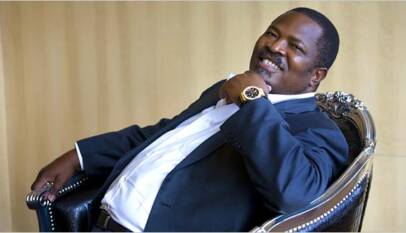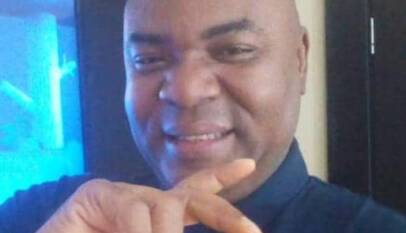When watchdogs become wolves: How power corrupts Nigeria’s idealists

Deeper Reflection with Chukwudi George Ozalla
It remains one of the most painful ironies of public life that those who once spoke truth to power often lose their own truth the moment power embraces them.
Across Nigeria’s political and bureaucratic landscape, we have watched again and again as journalists, civic advocates, and even clerics—men and women who once stood tall for justice, accountability, and moral revival—cross over into government or positions of authority only to become what they once condemned.
The very people who preached integrity begin to rationalize excess; those who once demanded transparency now build fortresses of secrecy.
It is a tragic metamorphosis that raises questions not only about the system but about human nature itself. Why do people who enter government or any position of influence with noble intentions end up compromised by the very structures they sought to reform? Why does the fire of conviction fade so quickly into the smoke of convenience?
The answer lies in the subtle, corrosive power of position. “Nearly all men can stand adversity,” Abraham Lincoln once said, “but if you want to test a man’s character, give him power.” ‘Man’ here is used in the general sense. In Nigeria’s public space, that quote plays out daily with devastating accuracy.
Those of us in the media and civic spaces often occupy the moral high ground, analyzing government failures with righteous passion. We hold up the mirror to society and believe, sometimes sincerely, that we would do better if given the chance.
But when that opportunity finally comes, many discover that the system is far more vicious than it appears from the outside. The same forces we once condemned now seduce us with privilege, pressure, and power.
The problem is not merely individual weakness—it is structural and cultural. Nigerian politics and public administration are not open plains for reformers; they are swamps—thick with vested interests, ethnic loyalties, godfatherism, moral decay, and institutional rot. The system punishes virtue and rewards complicity.
“If you want to serve honestly in Nigerian politics,” a retired public officer once told me, “be ready to swim against a raging tide. You will offend people, lose friends, and be branded a traitor.”
I know this from experience. During my own time in public service, a single act of honesty earned me a punitive transfer—over 700 kilometres away from my duty post. I later discovered that the new location had become a dumping ground for staff considered “stubborn” or “uncooperative.” Another colleague suffered the same fate for refusing to inflate budget figures to please superiors. Yet another was banished over something as petty as competing with a top official for the affection of a certain lady.
That was when I realized that corruption is not just about stealing public funds. It runs deeper—it is the abuse of office, the perversion of justice, and the intoxication of power that make people believe they can do and undo without consequence.
The decay in many government agencies runs so deep that even the unions—once strong voices for worker protection—have become shadows of themselves. Some have compromised, others co-opted. Instead of standing as the conscience of the system, they now wine and dine with management, leaving honest workers defenceless. Those who refuse to play along are often marked for frustration or dismissal. It is a slow but deliberate erosion of morality and morale.
Power, money, and fame are intoxicants that cloud judgment. They magnify ego, inflate self-importance, and create a false sense of invincibility. In Nigeria, where politics is idolized as the ultimate symbol of success, these temptations are even deadlier. Chinua Achebe once wrote in The Trouble with Nigeria: “It is not that power corrupts; it reveals the corruption that was already there.”
And indeed, power often does not change people—it exposes them. The journalist who becomes arrogant in office was probably always inclined to arrogance. The activist who excuses corruption in power likely had traces of opportunism buried beneath the rhetoric. Power merely strips away the veneer of virtue.
Still, not everyone who falters in office is inherently corrupt. Some are simply broken by frustration. Nigeria’s bureaucratic machinery often suffocates reformers through endless bottlenecks, ethnic politics, and resistance from entrenched interests. Some are blackmailed, starved of funds, or systematically isolated until they surrender or retreat into silence. The few who dare to remain upright are branded as troublemakers or enemies of progress.
The result is a tragic cycle. Citizens lose faith—not just in politicians, but in the very idea of reform. When those who once inspired hope succumb to the rot, cynicism becomes the national mood. People shrug and say, “They are all the same.” And so, the moral compass of the nation continues to spin in confusion.
But we cannot surrender to despair. Nigeria needs a new generation of leaders—drawn from all sectors, including media, civic advocacy, and faith-based institutions—who understand that public service is not a reward but a responsibility. To prepare for that, we must cultivate character before position, and conviction before opportunity.
Leadership, as Mahatma Gandhi rightly said, “is not about power; it is about responsibility.” When those who know the truth lose the courage to live it, darkness triumphs. The moral voices in our society must learn to remain consistent—not only when criticizing from outside but also when invited inside to serve.
Chief Obafemi Awolowo once said: “It is not life that matters, but the courage you bring into it.” Nigeria’s redemption depends on that courage—the courage to remain honest when honesty costs something, to stand firm when integrity invites punishment, and to resist the lure of compromise even when it isolates you.
Too many of our best minds in journalism, civil society, and the pulpit have crossed into public life only to drown in its murky waters. The watchdogs have become wolves, and the reformers have turned conformists. Until we confront this moral contradiction, Nigeria will keep recycling failure under different names.
In the end, every leader must remember: history has no sympathy for those who trade conviction for convenience. Power fades, fame dies, and wealth withers—but character endures. Those who serve with honesty may suffer temporarily—as I once did—but their integrity will outlive every title. And that, perhaps, is the true measure of greatness in a land that has forgotten what service really means.
So, in that little corner where you find yourself, how do you operate there? Remember: every act of integrity, no matter how small, strengthens the moral spine of a nation gasping for renewal. When enough Nigerians choose principle over privilege, the light will return—and the watchdogs will once again remember why they barked.
Publisher & Editor-in-Chief, NEWSCOUNT
CP Orutugu assures Aguata, Otuocha of neutral Police stand ahead of gov poll
Stanley Ihedigbo As part of ongoing security engagements ahead of the November 8, 2025, An…






